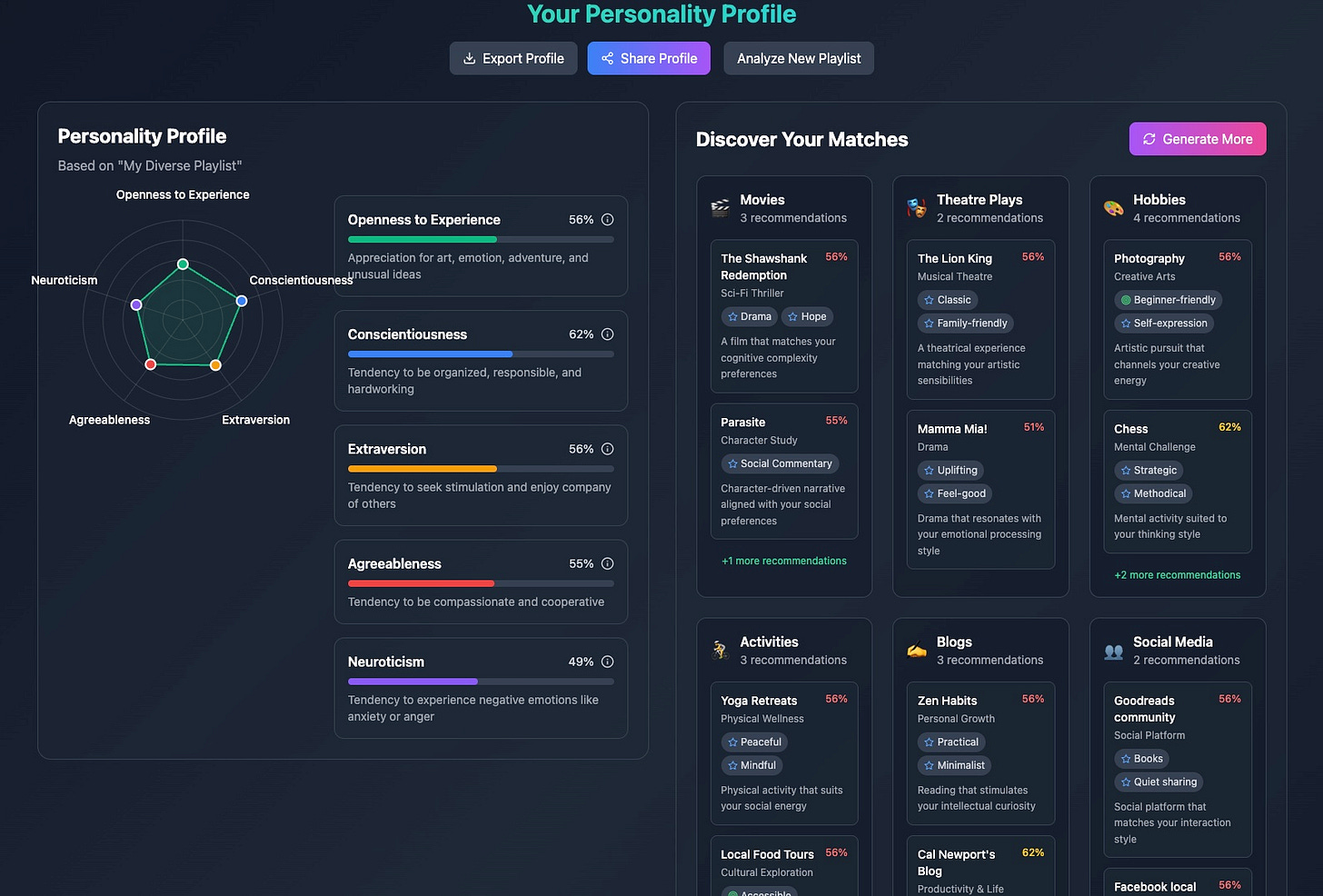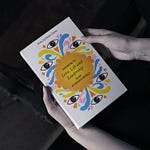Welcome reader! Just Thoughts is for modern-day leaders who want to think better about business, leadership, and entrepreneurship.
This article's Content is edited with the help of AI. Drafts and links to content given to Gemini for revision and structuring for clarity. Edited and re-edited to get the right style, as AI doesn’t give output that feels like yours.
Podcast Summary Generated with NotebookLM. P.s. These thoughts are “The Source”
Remember the first rule of Just Thoughts: Why should I think that way?
Headlines this week;
Building Giants; Norway’s Youth-Led Bonfire Tradition
The Art of Storytelling: Lessons from a Finnish Master
Competing for Attention in the Digital Age
From Playlists to Personalities: My Midsummer AI Experiments
The Hustle Culture vs. Smart Work
Beyond Pride Week
Building Giants: Norway's Youth-Led Bonfire Tradition
Midsummer came and went, but I discovered a fascinating Norwegian tradition called Slinningsbålet. For about a month and a half, boys and "a few stubborn girls" work together to build one of the largest bonfires in the world. Older kids teach the next generation how to build, a tradition that has continued since 1964.
The builders are typically between 13 and 21 years old. The community generally respects this age limit; those 22 and older become advisors or supporters. This age restriction ensures the tradition is passed down and remains a rite of passage for local teens and young adults. This approach keeps the event youth-driven and fosters a strong sense of responsibility and teamwork among the younger generation. Kudos to the clothing brand that has seamlessly embraced this tradition and its story.
The whole experience reminds me of my time at Slush. While Slush doesn’t discriminate against age among its volunteers, it has been selective (biased towards young adults) about who makes up the core team over the years. Besides teaching young adults the value of teamwork & responsibility, like the Slinningsbålet community, Slush teaches responsible changemakers the value of entrepreneurial thinking, the rewards of a global 'can-do' mindset, and the need for socially and environmentally conscious collaboration.
I’ve written before about Slush, and back in the day, we may have built our fire signs and stacked hundreds of pallets for furniture at the event.
Just Thoughts #25: Do you know how to build an ecosystem?
Just Thoughts is for modern-day leaders who want to think better about business, life, leadership, and entrepreneurship every week. You are either inspired or not when reading these thoughts.
The Art of Storytelling: Lessons from a Finnish Master
Speaking of stories and midsummer, I spent time reading a particular book (thank you, Teemu Laiho, for the loan). It's hands-down one of the must-reads for anyone invested in entrepreneurial endeavors in Finland. I've read works by Ray Dalio, Ben Horowitz, Paul Graham’s essays, Ed Catmull’s 'Creativity Inc.', Steve Jobs, Tony Hiesh 'Delivering Happiness', Bill Campbell’s 'Trillion Dollar Coach', and '100M Leads' by Alex Hormozi.
However, when it comes to breaking down the art of storytelling, this book stands apart. Unfortunately, even when translated, it may not resonate the same with an international audience since many examples are rooted in Finnish culture and media. The author dedicates a whole chapter to analyzing Steve Jobs’ storytelling mastery, but the real strength of this book comes from applying every framework to common incidents, political figures, and cultural content from modern Finnish culture.
Since Juhana’s book isn’t directly translatable, I used Perplexity to create an outline and find similar nonfiction works that could resonate with an English-speaking audience.
The PowerBook by Jeanette Winterson. This novel blends reality and fiction to examine themes of storytelling, identity, and the transformative potential of narrative. Like Torkki, Winterson delves into how stories shape lives and societies, using both theoretical reflection and vivid examples
If you are looking for nonfiction specifically on the craft and influence of storytelling, Robert McKee’s Story is another classic reference in English, focusing on narrative structure, archetypes, and the ethical dimensions of storytelling
Competing for Attention in the Digital Age
One of my key takeaways for "Just Thoughts" is that in today's world, where we constantly compete for attention, even journalists are now competing against all forms of media. This highlights the need for drama to keep the audience entertained, and the rule is always to satisfy the audience's hunger for it.
Let me entertain you, but it's hard to compete for attention when someone figured out how to close a fridge using every martial art.
Not to mention everyone who has been using AI lately in new, fascinating ways, such as creating Bigfoot vlogs, having Star Troopers perform random tasks, and getting Disney princesses to offer relationship advice.
The second learning from this book was about "it’s all about the premise." The premise sets the foundation of your story. What is your story about? Five words, at best. Listening to the best in the Finnish film industry this spring, it finally clicked why they mentioned, "when I figured out what the story is about, it was easy to tell the story."
The third learning was that you always need an enemy in your story. An evil you're fighting against. Whether it's an evil, a person, natural forces, an idea, or an ideology, it needs to be crystal clear.
A good example of what happens to a story when a movie fails to establish the enemy, creating a mixed message compared to the rest of the movie's premise, is "The Equalizer 3." My dad and I watched it over the Midsummer weekend.
The Equalizer 3 stumbles at the premise. The initial enemy introduced doesn’t have a clear connection to the film's main antagonist, which overcomplicates the setup. In contrast, John Wick's premise is remarkably simple and effective: a man goes on a rampage because his dog was killed. This clear motivation makes John Wick easy to understand and even emulate.
This complexity hinders Denzel Washington's character arc in The Equalizer 3. Throughout his "Hero's Journey," his transformation feels unearned because his involvement in helping the villagers doesn’t seem central to the plot, and the way scenes are constructed. The Equalizer 3's confusing premise in comparison to the rest of the story ultimately makes it less impactful and memorable than it could have been.
From Playlists to Personalities: My Midsummer AI Experiments
Other activities I was up to during the Midsummer weekend included randomly testing what sort of psychometric profiles you can derive from playlists, as my DJ friend Rony Rex was using professional labels to define who should listen to his music.
I did this with ChatGPT, as it seems to be easier to render good-looking visuals on the free subscription on the phone, within the same chat seen below.
Based on this psychometric profile, I asked it to make some movie suggestions for me; that is “if I like this music, what movies should I watch?”. The visual answer was the following.
As people do these days, I decided to see if I could create this as a one-shot app. So, I headed over to Perplexity to figure out the right prompt, and then to Bolt.new, which sure enough created the app. Not functioning with actual data, but it’s an example.
With websites like 16 Personalities having hundreds of millions of profiles, this is likely a hit, as soon as one gets this to work. I should probably take this idea for a couple of revisions and make a "Just Products" post about it.
The Hustle Culture vs. Smart Work
There's a lot of talk lately about founders needing to put in 80+ hour work weeks, with some even advocating for the Chinese "9-9-6" work culture (9 AM to 9 PM, six days a week). This seems incredibly counterintuitive to current AI developments, where "trust is the new oil." It also brings to mind that clip of Warren Buffett's calendar, famously empty.
This begs the question for everyone trying to "outwork" the next person: to what end? I'm not saying you shouldn't put in the effort if you want to be the best at what you do, but at what cost? And when you get there, then what?
Shouldn't the focus be on working smarter than the next person? Shouldn't it be about driving the impact you seek with your work, or is it simply about doing the work itself, as Elon Musk recently mentioned in an interview at Y-Combinator?
Here’s a link to a great post summarizing the points made at Y-combinator’s AI Startup School.
Beyond Pride Week
To conclude this edition of "Just Thoughts," it's Pride Week. Having written about this subject before and joined the parade in recent years, I simply hope people act inclusively the rest of the year, not just one week a year. Here's a little educational read from last year.
Until next time!
Just Thoughts is a reader-supported publication. To receive new posts and support my work, consider becoming a free or paid subscriber.




















Share this post